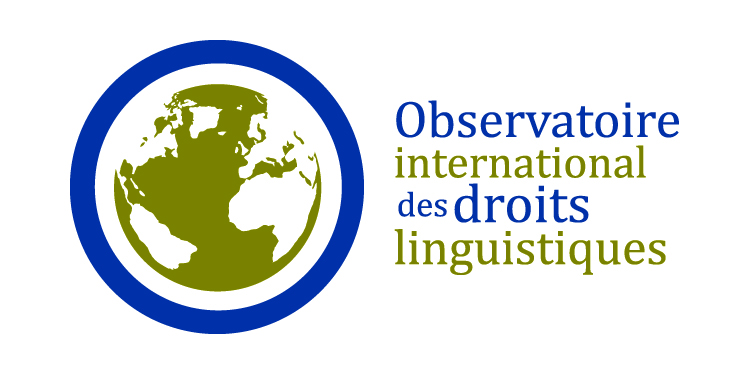Call for papers - 87th annual Acfas congress - May 2019
For a conference to be held by the CIRLM, QUESCREN and the International Observatory on Language Rights entitled
50 years of Implementing the Official Languages Act: review and prospects
May 29-30, 2019
87th annual Acfas congress
Université du Québec en Outaouais (UQO)Gatineau, Quebec, Canada
Deadline for abstracts: February 18, 2019
DESCRIPTION
The Act's fiftieth anniversary is the ideal time to review it in regard to its objectives, implementation and observance, and also in light of the aspirations of official language minority communities (OLMCs). On several occasions, the Office of the Commissioner of Official Languages has highlighted the failures of government with regard to the OLA. It is important to keep in mind that the OLA was mainly the result of federal political concerns about maintaining national unity in the face of rising Quebec nationalism. This indirectly resulted in OLMCs receiving legal recognition and support from the Canadian state. Although the OLA is based on an individualistic vision of language rights, the Government of Canada implements measures that have also supported civil society and collective activities from the time the Act was passed. The new OLA that came into force in 1988 reflected a shift towards a more collective conception of language rights.
Various government and community stakeholders are currently engaging in consultations and discussions in view of revising the OLA, for which a new version is planned for 2019. These include the studies and consultations led by the Standing Senate Committee on Official Languages, the Commissioner of Official Languages and the work of the Standing Committee on Official Languages. At these consultations, community actors, experts and citizens are invited to express their expectations for the new OLA. What is the current political context in which these consultations and discussions are taking place, compared to the context that produced the original OLA? What are the expectations, visions and aspirations of today’s OLMC representatives and citizens in relation to the OLA and its implementation? Moreover, how canwe integrate these concerns into the broader framework of language rights in Canada, in the provinces and territories, and in the project to adopt a law for indigenous languages?
This conference will take stock of and advance the latest views held by researchers, stakeholders and decision-makers about the OLA. It will focus on the implementation of the OLA and its effects on OLMCs, especially following the 1988 passage of Part VII of the Act, which describes the federal government as committed to “enhancing the vitality of the English and French linguistic minority communities in Canada and supporting and assisting their development,” and taking positive measures for this purpose. In the context of current consultations and a smoothly progressing collective discussion to revise the Act, this conference provides an opportunity to take stock of these ideas and, more generally, reflect on the relationships between language rights and society. The goal of this conference it to help clarify the role of the government and various actors in implementing the OLA, and the development and growth of OLMCs.
ORGANIZERS
This conference is organized by the Canadian Institute for Research on Linguistic Minorities (CIRLM), the Quebec English-speaking Communities Research Network (QUESCREN) and the International Observatory on Language Rights.
The proposals will be evaluated by a scientific committee made up of the following:- Éric Forgues, Ph.D., Executive Director, CIRML, Université de Moncton
- Érik Labelle-Eastaugh, Ph.D., Director, International Observatory on Language Rights, Université de Moncton
- Lorraine O’Donnell, Ph.D., Affiliate Assistant Professor and Coordinator-researcher, QUESCREN, Concordia University
- Patrick Donovan, Ph.D., Associate Coordinator, QUESCREN, Concordia University
- Stéphanie Chouinard, Ph. D., Professor, Royal Military College of Canada
- Gino LeBlanc, M.A., Director, OFFA, Simon Fraser University
- François Larocque, Ph.D., Canadian Francophonie Research Chair in Language Rights and Full Professor, Univerity of Ottawa
The evaluation criteria will be based on the scientific quality of the proposal and its relevance to the theme of the conference.
YOUR PARTICIPATION IN THE 2019 CIRML, QUESCREN AND INTERNATIONAL OBSERVATORY ON LANGUAGE RIGHTS CONFERENCE
Please follow these guidelines for each proposal:
- Name, job title, organization and email address of the paper presenter, as well as the presenter’s co-authors, if applicable
- Title of the paper (max. 160 characters, including spaces)
- An outline in French or English (max. 1,250 characters, including spaces), if applicable
- Short bibliography supporting the proposal, if applicable
Note that there are procedures in place to obtain funding for fees related to conference participation (registration, transportation, accommodation). Please state whether you require funding for these fees.
Please send your proposal in electronic format by February 18, 2019 to This email address is being protected from spambots. You need JavaScript enabled to view it.
EVALUATION OF PROPOSALS
The proposals will be evaluated by the program committee. Authors of proposals retained by the committee will be informed by email by March 12, 2019.
LANGUAGE OF PRESENTATION
Acfas is a French-language venue. Presentations in French are strongly encouraged. In the case of English-language presentations, visual aids should be in French (e.g. PowerPoint presentations, handouts for attendees, etc.).
CONGRESS REGISTRATION AND OTHER EXPENSES

